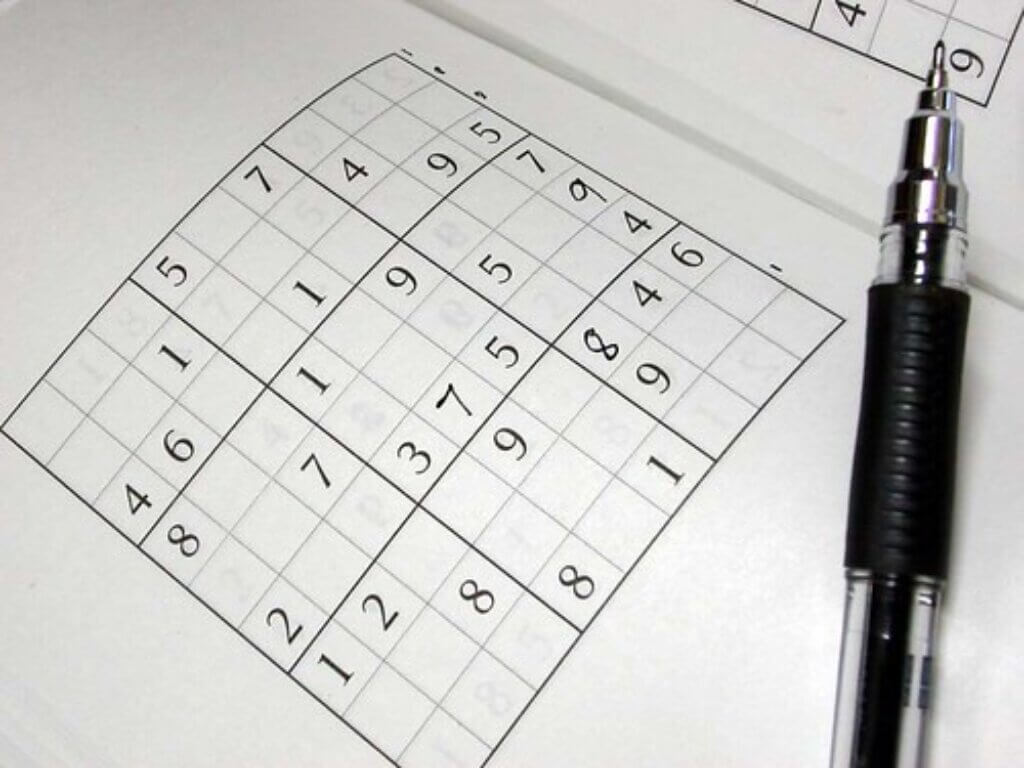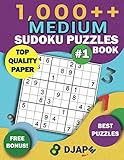Benefits of Sudoku – Introduction
This article will explore the many benefits of Sudoku but the main one is quite simple, Sudoku challenges the mind in a fun, additive way.
Once confined to the pages of newspaper supplements, this brain-teasing puzzle game has become popular worldwide and shows no sign of slowing down.
What is Sudoku and Why is It So Popular?
Sudoku is a logic-based number placement game based on a 9×9 grid divided into smaller squares.
Your task is to fill this grid using numbers 1 to 9 but each number can only be used once per row, column, and square.

The real beauty of this game lies in its simplicity and the varied challenges it can offer. This makes it suitable for the complete novice and more ‘seasoned’ puzzler.
The other benefits of Sudoku like improving problem-solving skills and enhancing memory, have made these puzzles even more popular, especially with senior puzzlers who want to keep their minds sharp.
Sudoku Rules and Tips
Unlike more complicated puzzles and games, there are very few Sudoku rules and they’re quite easy to get used to. The rules are simple:
- Each row must contain the numbers from 1 to 9, without repetitions.
- Each column must contain the numbers from 1 to 9, without repetitions.
- The numbers 1 to 9 can only occur once per ‘sub-square’.
- The sum of every single row, column, and sub-square must equal 45.
Depending on the difficulty level, some of the numbers will already be included in the grid, to give you a good starting point!
Then the rest is up to you and your logical deduction comes into play.
Tips for Beginners
The best way to start these puzzles is by choosing some beginner-friendly ones. These are simpler puzzles with more of the numbers pre-filled.
They will help ease you into this wonderful world and take advantage of all of the benefits of Sudoku, without feeling overwhelmed. Focus on one square at a time and gradually fill in the blanks.
Use a pencil and have an eraser on standby. As you progress through your Sudoku, you might find these are very handy!
The Rich History of Sudoku
The history of Sudoku is very much a French affair!
‘Magic Squares’ were first introduced in 1892 by a French newspaper called Le Siecle. These magic squares were not true Sudoku as some math was required to solve these ‘double-digit’ problems, but they did lay a good foundation for what followed.
Aside from the grids themselves, these early puzzles shared something else in common with the modern version as each subsquare, column and row would need to add up to the same number.

Just 3 years later the ‘true’ history of Sudoku was started when a French newspaper rival, La France, changed the puzzle into more like the form we know and love today.
There are some other differences from these earlier versions to modern Sudoku, like how we now have the subsquares marked, and depending on the difficulty, some squares are populated to aid the puzzler.
Some puzzle types don’t adapt well to a changing world but that’s not the case with these puzzles. You will find plenty of great Sudoku books, suitable for all ages and difficulty levels. But now we have the option of playing Sudoku online and with mobile apps. So many options, so much fun!
Does Sudoku make you smarter?
Studies strongly suggest that Sudoku enhances the cognitive processes involved in problem-solving, pattern recognition and logic. But does Sudoku make you smarter? That depends on what you mean by smarter!
Playing these puzzles might not increase your IQ but it can have a positive effect on your mind’s agility and response times. It can increase the brain’s ability to change, organize, and grow neural networks (Neuroplasticity) which has the added benefit of potentially delaying the onset of age-related cognitive decline.
As avid Sudoku fans, we’re kind of biased, but YES we think Sudoku does make you smarter!
Is Sudoku Hard?
They can be complex, difficult, and challenging but is Sudoku hard? That depends on you as the player, what your skill level is, and if you’ve ever done a Sudoku puzzle before!
There’s a difficulty level to cater for all players and it’s just a matter of knowing where to look.
The complexity of Sudoku lies in the puzzler’s ability to hold multiple potential number placements in their mind simultaneously. This can seem difficult at first but you just need some practice and perseverance. Before you know it, the easy puzzle book will be finished and you’ll be reaching for the next difficulty level.
The Dark Side: Disadvantages of Sudoku
Like anything good, there are positives and negatives with these types of puzzles. So what turns the benefits of Sudoku into disadvantages?
Excessive play! So you’ve found some new puzzles that you love.
This Sudoku book has to be your favourite up to now and you just can’t put it down.
But you’re feeling drained, hungry, and the dog is staring at you wondering why he hasn’t been walked today.

Welcome to the dark side of Sudoku!
You just need to ease back on the puzzling for a bit. Ensure you maintain a balanced approach to your fun and responsibilities and give ‘Wolfie’ a well-deserved walk. Sudoku is great for your mind, we all just need to ensure we don’t get lost in this addictive puzzling world.
Aside from this. we don’t think there are any disadvantages with Sudoku!
Fastest Sudoku Time
The current world record fastest Sudoku time will amaze you. A staggering 54.44 seconds to solve a 9×9 grid was accomplished by Wang Shiyao at the 2018 Prague Sudoku world championships.
A Sudoku Master, like Wang, possess an also magical ability to spot patterns and place numbers, with great precision, at breakneck speeds. Not to mention the exceptional mental endurance and logical reasoning that is required to make it to these championships in the first place.
So what about your fastest Sudoku time?
Well, it does take a blend of natural talent and cultivated skill! If you’re like us then the talent bit might seem a distant dream and you might not be destined for the world championships. But, and this is great news, your skills can be cultivated.
You will see your Sudokou times getting faster with practice, and then some more practice!
The more puzzles you do the faster your decision-making becomes and mental agility will improve. Maybe that’s the way Wang started?
How are Sudoku Puzzles Made?
If you ask puzzle constructors how are Sudoku puzzles made, you might be told that they are a fine blend of ‘artistic creativity and scientific precision’. And who are we to argue? These constructors are also called ‘setters’ or ‘creators’ and strive to produce puzzles that challenge and entertain.

Ensuring that each puzzle is solvable and meets a specific difficulty is top of their agenda and for this modern technology is used, in the form of sophisticated computer algorithms.
These algorithms are designed to manage the complexity of the puzzle by controlling the distribution and arrangement of initial numbers.
In most cases, this would result in fewer, strategically placed, numbers for harder-level puzzles and more numbers for the beginner ‘friendly’ variants. How these numbers are placed in the grid is an important element that setters consider. This helps with the visual appeal of the puzzle but also with the logical deduction process of the puzzler solving the problem.
Setters must achieve a balance between a good-looking puzzle and one that offers an appropriate level of intellectual stimulation based on its intended difficulty.
That is quite a job, thank you setters!
The Lasting Impact of Playing Sudoku
Sudoku is more than just a fun game; it’s like a brain workout that helps you think sharper and feel good about your achievements.
The benefits of Sudoku are all yours when you add these puzzles to your daily routine, and you’ll soon notice your mood improving and your mind getting stronger. Whether you’re already good at solving Sudoku puzzles or just beginning, playing Sudoku can help keep your mind active and your life balanced.
Try doing one puzzle each day to see how it boosts your thinking skills and helps you solve problems better.










